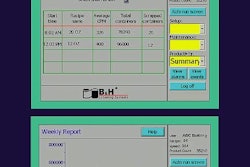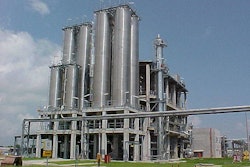So says a report from management consultant, A. T. Kearney.
Retailers can be expected to see benefits such as reduced inventory, reduced store and warehouse labor costs, and a reduction in out-of-stock items. For retailers, the Kearney report estimates the costs of adoption of the Electronic Product Code (EPC) and RFID at $400ꯠ per distribution center, and $100ꯠ per store.
“While these are very significant amounts, the upside is that most of the costs to retailers are fixed,” says Dave Donnan, vice president of Kearney who conducted the analysis. “The story for manufacturers, on the other hand, is quite different depending on the type of product they make.” While they incur similar one-time charges for readers and integration, they’re also hit with the recurring charge of placing RFID tags on pallets and cases.
While the cost of tagging varies, Kearney estimates that a low-impact grocery manufacturer would have to invest $155 million in capital budgeting, assuming the current tag cost and a 10-year horizon. “The hit on manufacturers’ cash flow is not something that can be made up by volume, as the saying goes,” Donnan says. “In fact, the high-volume manufacturers will see the greatest cash flow impact.”
Although the report does identify some benefits to manufacturers, it says that most manufacturers are “well beyond the basics when it comes to supply chain efficiency” and there might not be much left to gain from these benefits. The report advises low-impact manufacturers to closely examine the rationale behind EPC and RFID tagging, and consider alternative courses to meeting the Wal-Mart mandate. In November, Wal-Mart met with suppliers and is reported to confine its roll-out of RFID to three distribution centers and 150 stores in Texas. —AO
























